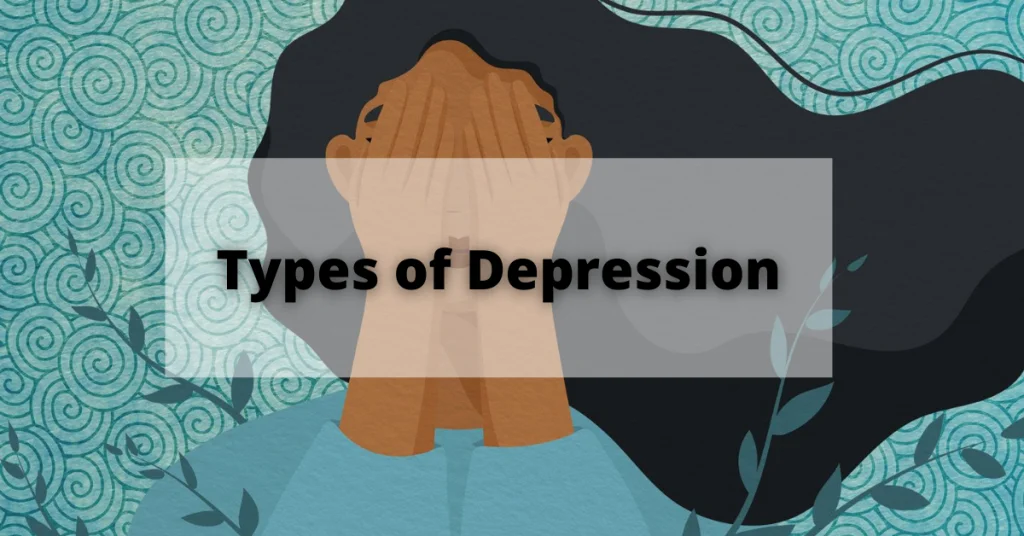Depression is a serious mental health condition that can affect anyone at any time. It is more than just feeling sad or down for a few days. Depression can cause significant problems in your life and can lead to suicide if left untreated. In this blog post, we will discuss the different types of depression, the symptoms, and the treatment options available.
Contents
What Is Depression?
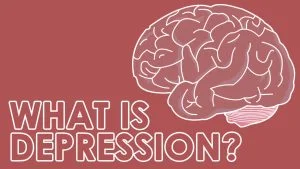 Depression is a mood disorder that causes a persistent feeling of sadness and loss of interest. It can lead to a range of emotional and physical problems. However, approximately 350 million people of all ages suffer from depression worldwide.
Depression is a mood disorder that causes a persistent feeling of sadness and loss of interest. It can lead to a range of emotional and physical problems. However, approximately 350 million people of all ages suffer from depression worldwide.
Depression can manifest in a number of ways. This can result in people feeling different ways about their condition. Some people with depression feel down all the time, while others experience short-lived episodes of sadness. A person’s mood can also vary depending on the day or week.
This disorder can also lead to physical problems, such as headaches, fatigue, and changes in appetite. Depression can also make it difficult to concentrate or make decisions.
Depression is a serious condition that should be treated by a doctor. Furthermore, treatment usually involves antidepressant medications and therapy.
Types of Depression
There are many types of depression. Each type has different symptoms.
Major Depressive Disorder (MDD)
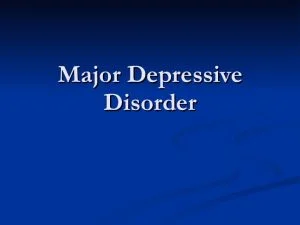 This disorder is characterized by a combination of symptoms that interfere with daily life. MDD is the most common type of depression. Furthermore, this type of depression is usually treated with antidepressant medications. Sometimes therapy is also needed. This depression varies from other types on the basis of severity and duration.
This disorder is characterized by a combination of symptoms that interfere with daily life. MDD is the most common type of depression. Furthermore, this type of depression is usually treated with antidepressant medications. Sometimes therapy is also needed. This depression varies from other types on the basis of severity and duration.
Dysthymia
This type of depression is less severe than MDD, but it lasts for a longer period of time. People with dysthymia often have trouble functioning at work or school. They may also have problems maintaining relationships. This type of depression is usually treated with antidepressant medications and therapy.
Postpartum Depression
 This type of depression affects women after they give birth. It can cause feelings of sadness, anxiety, and hopelessness. Postpartum depression can also lead to problems breastfeeding and caring for the baby. This type of depression is usually treated with antidepressant medications and therapy.
This type of depression affects women after they give birth. It can cause feelings of sadness, anxiety, and hopelessness. Postpartum depression can also lead to problems breastfeeding and caring for the baby. This type of depression is usually treated with antidepressant medications and therapy.
Seasonal Affective Disorder (SAD)
SAD occurs when people experience depressive symptoms during the winter months. This type of depression is usually treated with light therapy and antidepressant medications. This type of depression is also known as seasonal depression. This disorder usually improves during the summer months.
Bipolar Disorder
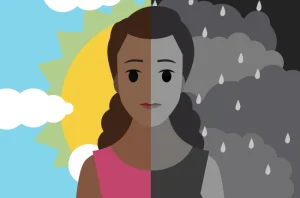 This disorder is characterized by severe mood swings. However, people with bipolar disorder go from feeling very high and energetic to feeling very low and depressed. This type of depression is usually treated with a combination of antidepressant medications, mood stabilizers, and therapy.
This disorder is characterized by severe mood swings. However, people with bipolar disorder go from feeling very high and energetic to feeling very low and depressed. This type of depression is usually treated with a combination of antidepressant medications, mood stabilizers, and therapy.
Psychotic Depression
This type of depression occurs when people have symptoms of psychosis in addition to depressive symptoms. Psychosis is a condition that causes people to see or hear things that aren’t there. This type of depression is usually treated with antipsychotic medications and therapy. Sometimes electroconvulsive therapy (ECT) is also needed.
Premenstrual Dysphoric Disorder
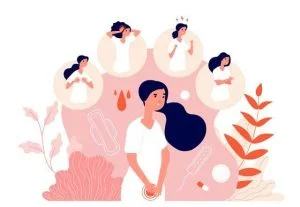 Depression that occurs before a woman’s period is known as premenstrual dysphoric disorder (PMDD). This type of depression causes severe mood swings, irritability, and anxiety. PMDD is treated with antidepressant medications and therapy. Sometimes birth control pills are also needed.
Depression that occurs before a woman’s period is known as premenstrual dysphoric disorder (PMDD). This type of depression causes severe mood swings, irritability, and anxiety. PMDD is treated with antidepressant medications and therapy. Sometimes birth control pills are also needed.
Peripartum Depression
Peripartum depression is a type of depression that occurs during pregnancy or after giving birth. This type of depression can cause feelings of sadness, anxiety, and hopelessness. Peripartum depression can also lead to problems breastfeeding and caring for the baby. This type of depression is usually treated with antidepressant medications and therapy.
Situational Depression
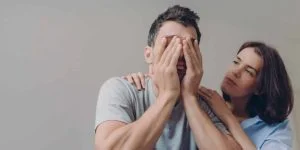 Situational Depression is a type of depression that is caused by a stressful event or situation. This type of depression usually lasts for a few months. Situational depression is treated with antidepressant medications and therapy.
Situational Depression is a type of depression that is caused by a stressful event or situation. This type of depression usually lasts for a few months. Situational depression is treated with antidepressant medications and therapy.
Stages of Depression
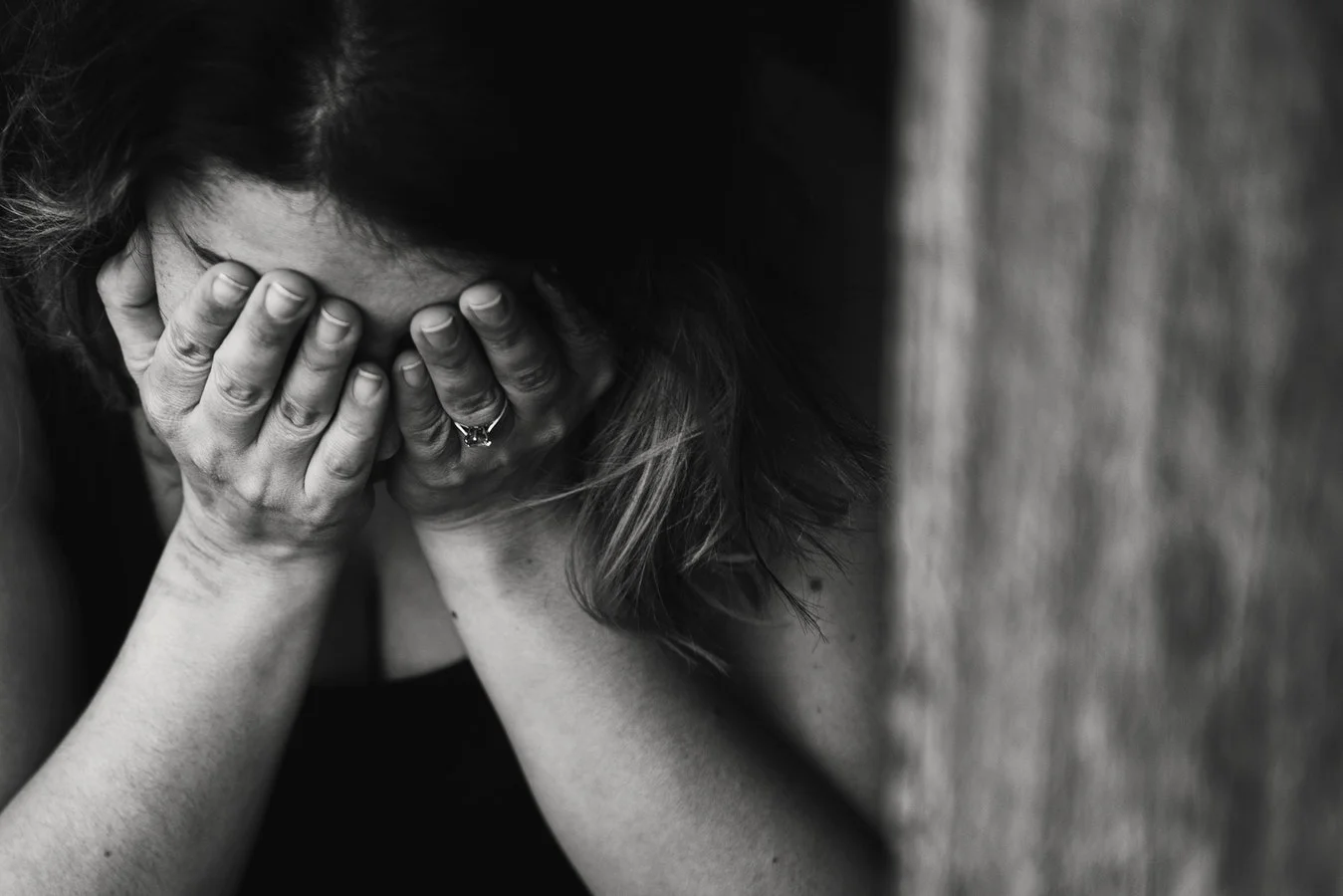
There are many stages of depression. However, each type has different symptoms.
Stage One: Origin
This stage is known as the origin stage. This is when a person first begins to experience depressive symptoms. In this stage, the person may not have a clear idea of what is happening.
Stage Two: Awareness
This stage is known as the awareness stage. In this stage, the person becomes more aware of their depressive symptoms. They may also start to feel overwhelmed by them.
Stage Three: Identification
In this stage, the person identifies themselves as being depressed. This can be a difficult process because it involves admitting that there is something wrong with them.
Stage Four: Treatment
This stage is when the person begins to seek treatment for their depression. This can be an uphill battle because it often requires admitting that they need help. However, getting treatment for depression is crucial for recovery.
Signs of Depression
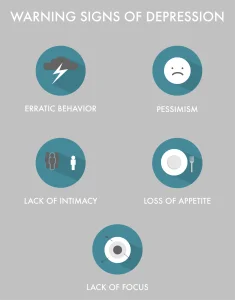 There are many signs of depression. Some of the most common ones include:
There are many signs of depression. Some of the most common ones include:
Sadness
Sadness is one of the most common symptoms of depression. People with depression often feel sad, hopeless, and helpless. There are many reasons why someone may feel sad, including the loss of a loved one, financial problems, or health problems.
Anxiety
People with depression often experience anxiety. This can manifest as feelings of worry, fear, and unease. People with anxiety may also have trouble sleeping and concentrating. Sometimes they may also have panic attacks.
Lack of Motivation
People with depression often lose their motivation to do things they used to enjoy. They may feel like they can’t accomplish anything and that life is pointless. This can lead to feelings of isolation and despair.
Insomnia
People with depression often have trouble sleeping. This is because depressed people often have racing thoughts and problems concentrating. People with insomnia may also find it hard to fall asleep or stay asleep.
Eating Disorders
People with depression are at a higher risk for developing eating disorders such as anorexia nervosa or bulimia nervosa. These disorders involve extreme dieting, binge eating, and purging. Eating disorders can be very dangerous and can lead to health problems.
Suicidal Thoughts
People with depression often have thoughts of suicide. This is because they feel like there is no other way out of their situation. If you are having thoughts of suicide, please get help right away.
Lack of Energy
People with depression often have low energy levels. They may feel tired all the time and have difficulty getting out of bed in the morning. This can lead to a lack of productivity and feelings of hopelessness.
Thoughts of Suicide
There can be warning signs that someone is thinking about suicide. Furthermore, some of the most common warning signs include talking about wanting to die or hurt oneself, expressing feelings of hopelessness, and withdrawing from friends and activities. If you see any of these warning signs, please get help right away.
Causes of Depression
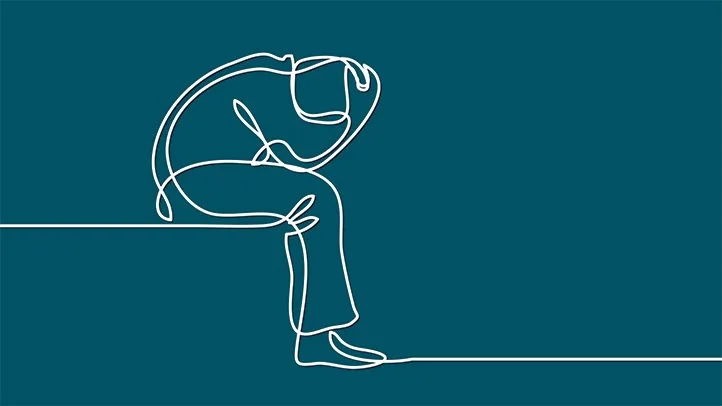
There can be many causes of depression. Some of the most common ones include:
Chemical Imbalance
Depression may be caused by a chemical imbalance in the brain. This can lead to symptoms such as low mood, anxiety, and problems sleeping.
Life Events
Many people develop depression after experiencing a traumatic event such as the death of a loved one, divorce, or job loss. Furthermore, sometimes these events can be too much for someone to handle and they become overwhelmed with depressive symptoms.
Genetics
Depression can sometimes be hereditary. If you have a family history of depression, you are more likely to develop it yourself. This can be due to genetic or environmental factors.
Treatment For Depression
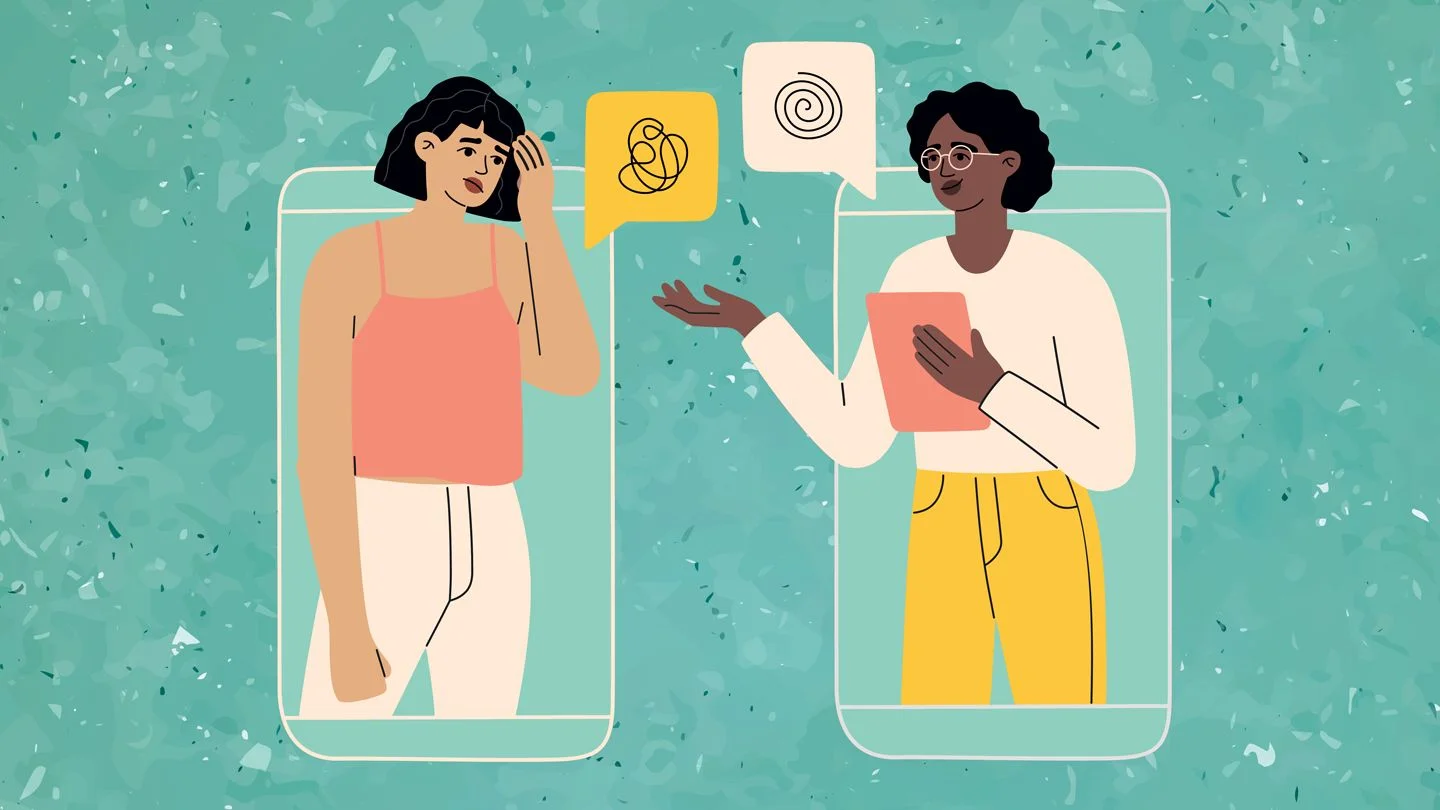
There are many different types of treatment for depression. Some of the most common ones include:
Counseling
Counseling is a therapy that involves talking with a therapist about your problems. This can be helpful for people with depression because it allows them to express their feelings and get help coping with them.
Medication
If you have severe depression, your doctor may prescribe medication. There are many different types of antidepressant medications available and they work in different ways. It may take some time to find the medication that works best for you.
Support Groups
There are also many support groups available for people with depression. These groups allow people to share their experiences and learn from others. This can be helpful in coping with depression.
Therapy Dogs
Some hospitals and clinics are now using therapy dogs to help treat people with depression. Furthermore, studies have shown that interacting with a therapy dog can reduce stress levels and improve moods.
How To Prevent Depression?
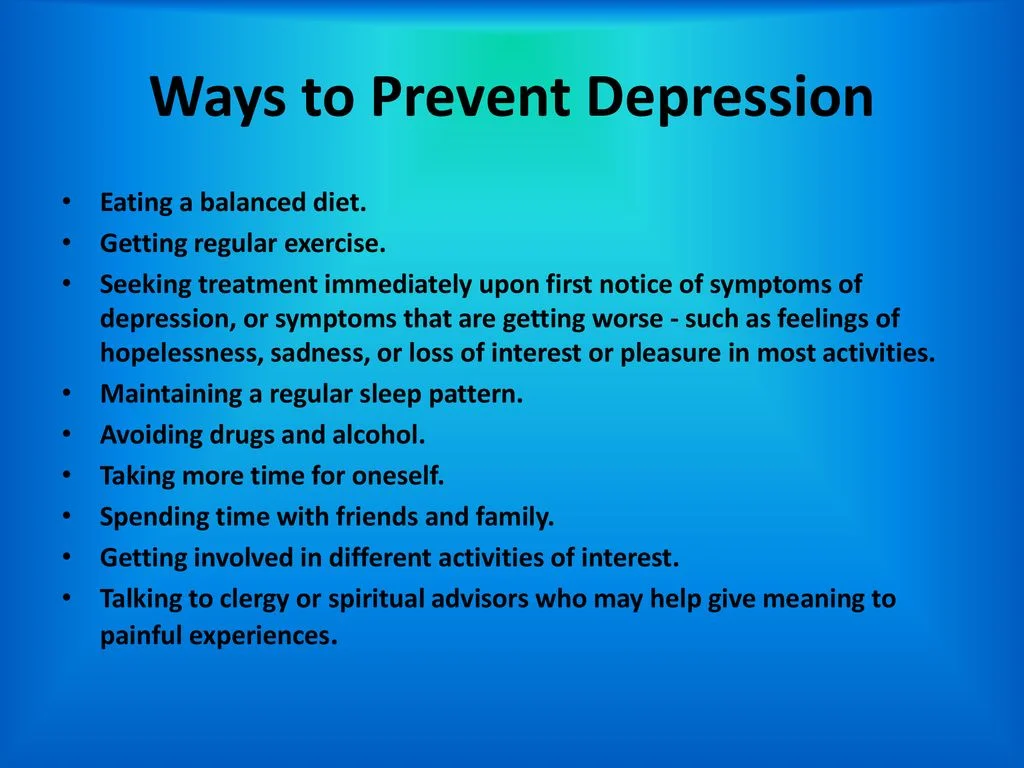
There are many ways to prevent depression. Some of the most effective ones include:
Maintaining Healthy Lifestyle
People who have a healthy lifestyle are less likely to develop depression. This includes eating nutritious foods, getting regular exercise, and getting enough sleep. You can also reduce your risk of depression by avoiding alcohol and drugs.
Seeking Help Early
If you experience any symptoms of depression, it is important to seek help right away. The earlier you get treatment, the more likely you are to recover. This also reduces the risk of developing more serious problems later on.
Supporting a Loved One
If someone you know is struggling with depression, it is important to offer them your support. This can mean listening to them, providing encouragement, and helping them get treatment. You can also find support groups for people who are supporting someone with depression.
Trying New Treatment
If you have been struggling with depression for a while, it may be time to try a new treatment. There are many different types of therapy and medication available, so talking to your doctor can help you find the right one for you.
Making Coping Strategies
If you are struggling with depression, it is important to have coping strategies in place. This includes things like relaxation techniques, journaling, and positive self-talk. These can help you manage your symptoms and stay healthy.
Conclusion
Depression is a serious condition that should be treated by a doctor. Types of depression also include bipolar disorder, which is characterized by extreme mood swings between depression and mania. There are many different types of treatment available for depression, so it is important to find the right one for you. There are also many ways to prevent depression, including maintaining a healthy lifestyle, seeking help early, and supporting a loved one who is struggling with depression.
If you or someone you know is struggling with depression, please seek help from a doctor. Depression is a serious condition that should not be ignored.
A Word From Therapy Mantra
Your mental health — your psychological, emotional, and social well-being — has an impact on every aspect of your life. Positive mental health essentially allows you to effectively deal with life’s everyday challenges.
At Mantra Care, we have a team of therapists who provide affordable online therapy to assist you with issues such as depression, anxiety, stress, relationship, OCD, LGBTQ, and PTSD. You can take our mental health test. You can also book a free therapy or download our free Android or iOS app.
